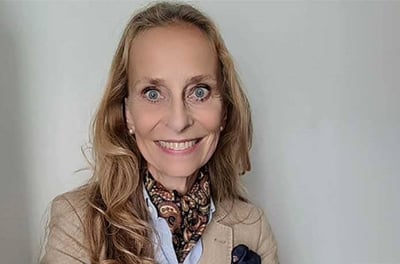Building a Better Auditor: The Difference of Authentic Leadership
Blogs Ursula Schmidt, PHD, CCEP-I Oct 28, 2025

What makes stakeholder relationships in internal audit so difficult? And what could make them a little easier?
When you think that “authentic” was the 2023 word of the year chosen by Merriam-Webster, there must be more than one definition! The one I like most is simple: “the quality of being genuine, or true to oneself.” It says it all.
Being authentic is the opposite of being fake. It means being real. Now, what “being real” may mean for you might be something entirely different than what it means to me, because thankfully, everyone is different. But to me, being authentic — in a positive sense — means that you can say about a person: that’s exactly him or her.
There’s one key element to add to the equation: appropriateness. In a professional context, and especially in a complex context like internal audit, which is easily prone to conflict, there’s a very fine line between just being oneself and choosing the right “color” in any given moment. There is no such thing as just one personal layer. In the end, we all must learn to be social chameleons.
We have stakeholders at all levels of the hierarchy, inside and outside our organization. Finding the right approach to serve them requires knowing oneself well and determining which part of our authentic self serves each situation best. Putting it simply, your authentic way of communicating with the audit committee chair might be different from your authentic way of interviewing a young intern whose role is to explain a business process to you. But it’s still you: socially adaptive, but genuinely you.
Now, when you think one step further and wonder what stakeholder relationships in internal auditing have to do with authentic leadership, it becomes very clear that an authentic approach is an excellent way of navigating our stakeholder relationships. Why? Because our profession, on the one hand, and the idea of authentic leadership, on the other, share a common foundation, and that’s integrity.
Integrity is the cornerstone of internal audit’s ethical principles, and it’s the cornerstone of authentic leadership that is based on a clear purpose, values, empathy, self-discipline, and the need for strong relationships. Being authentic in our stakeholder relationships is a natural match.
So, what could be a go-to strategy for establishing trust with new stakeholders, especially when there may be initial resistance or skepticism? There’s no one-size-fits-all strategy. Mine would always be to try starting it off in a friendly manner. And I will employ a bit of humor, and a lot of transparency. Often, resistance and skepticism come from a lack of transparency and knowledge about the audit process. I would try to explain, as best I can, why we are auditing what we are auditing and that it’s part of a regular, structured process, based on clear governance and stringent principles. And I would explain this process: what we will do, how, what we need, what the outcome and post-audit communication will look like, what confidentiality means in practice, and so on.
Without building some rapport, we won’t do a good job. Because there is never “just that process.” There is always that one person behind the process. And we always meet twice! So just thinking, “Let me quickly do that audit, and then I am gone” doesn’t work. We need to think relational, not transactional.
I won’t say it will always be easy — especially if, after some time, you get to know your counterparts well or if there is true resistance. But I believe we need a general mindset of friendly, polite, professional distance, and of course, professional skepticism, at the outset. And besides that, we need a moral compass that tells us how far we can bend in a situation where we need to make tough decisions. That’s where authentic leadership qualities come into play again: We need the courage and honesty to tell the truth, even if it hurts.
What do I think helped me most during my many years in the profession to make it “relational”? A genuine interest in other people. Not just in what they do for work, but who they are, where they come from, where they like to spend their holidays, what hobbies they have, their families, and so on. I ask a lot of questions, and usually I remember such things — because they truly interest me! Then at the next meeting or call, there’s some starting point for a conversation, and people typically appreciate when someone remembers things about them (and most people like to talk about themselves).
On a professional level, I am convinced that people understand rather quickly if someone is honest, possesses courage, and does one’s best to be reliable. Presenting true, basic, authentic values can help, over time, to earn trust and respect. Coupled with a genuine interest in other people, it allows you to stay connected. And it’s human connections that make or break an audit.
This blog is based on an interview with Ursula Schmidt, originally published in February by the IIA Czech Republic magazine, Interní auditor.
The views and opinions expressed in this blog are those of the author and do not necessarily reflect the official policy or position of The Institute of Internal Auditors (The IIA). The IIA does not guarantee the accuracy or originality of the content, nor should it be considered professional advice or authoritative guidance. The content is provided for informational purposes only.


